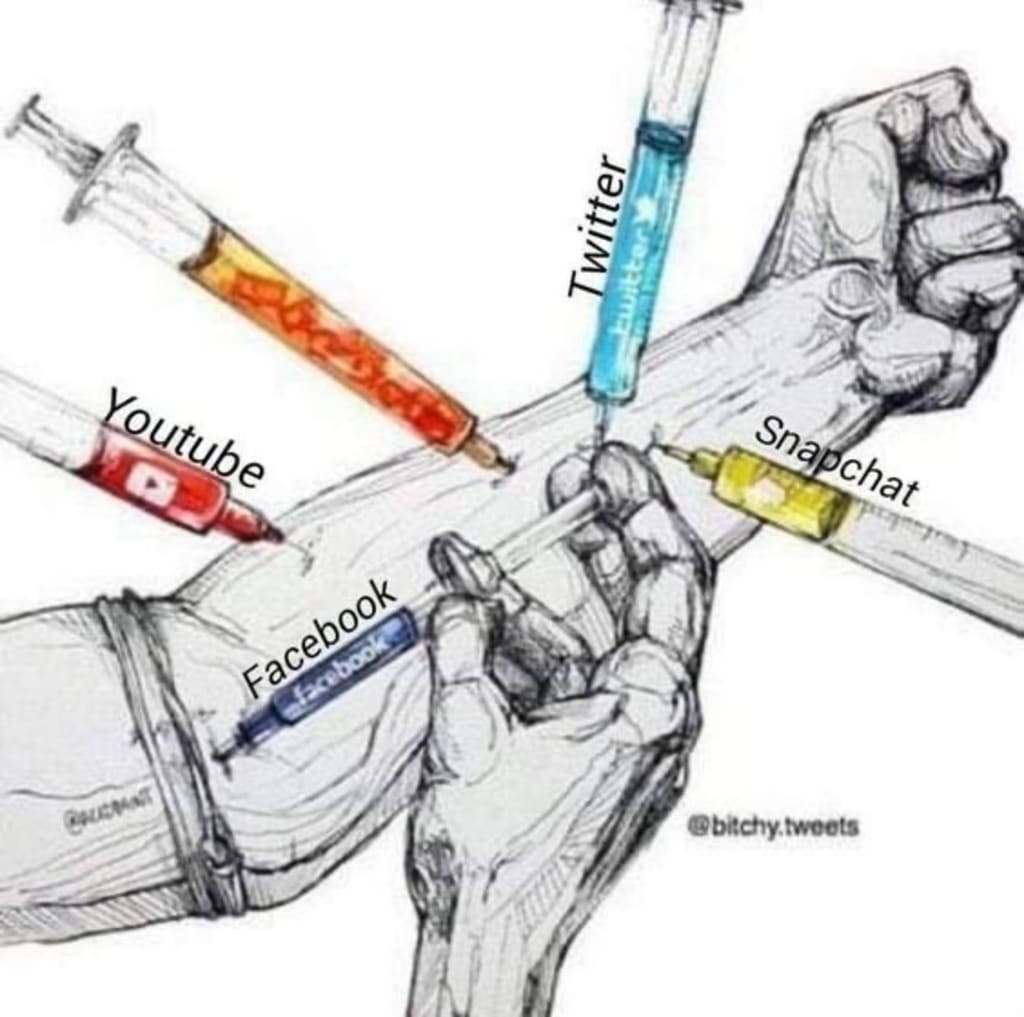
I want to talk to you about social media addiction. As we all know, social media has become an integral part of our daily lives. Many of us use social media to stay connected with friends and family, share our thoughts and experiences, and stay up-to-date on the latest news and trends. While social media can be a great tool for staying connected and informed, it can also become addictive and have negative effects on our mental health.
Social media addiction is a real phenomenon, and it can have serious consequences. When we spend too much time on social media, we can become disconnected from the real world and lose touch with our friends and family. We can also become more anxious and depressed, as social media can create unrealistic expectations and make us feel like we're not living up to them.
One of the main reasons why social media is so addictive is because it's designed to be that way. Social media platforms use algorithms to keep us engaged and scrolling for as long as possible. They do this by showing us content that is tailored to our interests and preferences, which can be incredibly compelling. They also use notifications and other features to keep us coming back for more.
So, how do we know if we're addicted to social media? There are a few signs to look out for. If you find yourself checking your phone constantly, even when there's no reason to, that could be a sign of addiction. If you feel anxious or stressed when you're away from your phone or computer, that could also be a sign of addiction. Finally, if you feel like you're losing touch with the real world and your relationships are suffering because of social media, that's a clear sign that you need to make some changes.
If you think you might be addicted to social media, there are some steps you can take to break the cycle. First, try to limit your use of social media. Set aside specific times of day when you can check your phone or computer, and stick to those times. You can also try deleting social media apps from your phone, or using tools that limit your access to social media.
Another way to break the cycle of social media addiction is to find other activities that you enjoy. Spend time with friends and family, read a book, go for a walk, or try a new hobby. By doing things that you enjoy, you'll be less likely to turn to social media for entertainment.
feel like you can't break the cycle of social media addiction on your own. Talk to a trusted friend or family member, or consider seeing a therapist or counselor. They can help you develop coping strategies and provide support as you work to overcome your addiction.
In conclusion, social media addiction is a real problem that can have serious consequences for our mental health and relationships. By recognizing the signs of addiction and taking steps to limit our use of social media, we can break the cycle and live healthier
Social media addiction is a term used to describe the excessive use of social media platforms to the point where it interferes with an individual's daily life. While social media can be a valuable tool for staying connected with friends and family, it can also be addictive and have negative consequences for our mental health and relationships.
Some common signs of social media addiction include spending more time on social media than intended, feeling anxious or irritable when unable to access social media, neglecting other responsibilities or activities in favor of social media, and experiencing negative consequences such as strained relationships or decreased productivity as a result of social media use.
Social media addiction can have serious consequences for our mental health, including increased anxiety, depression, and feelings of loneliness or isolation. It can also negatively impact our relationships, as excessive social media use can lead to decreased face-to-face interactions and difficulty forming meaningful connections with others.
If you're concerned that you or someone you know may be struggling with social media addiction, it's important to seek help. This may involve talking to a trusted friend or family member, seeing a therapist or counselor, or taking steps to limit your use of social media. By recognizing the signs of addiction and taking steps to address it, you can break the cycle of addiction and live a healthier, happier life.





Comments
There are no comments for this story
Be the first to respond and start the conversation.